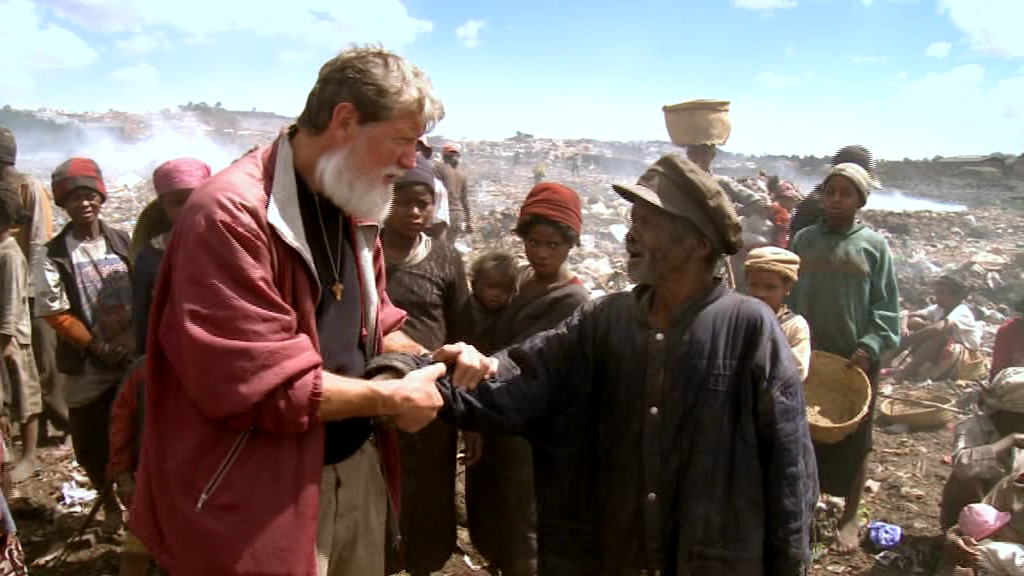
Pedro Opeka could have become a professional soccer player. Instead, he decided to devote his life to giving hope to those who need it most.
Opeka was born on the outskirts of Buenos Aires, Argentina, in 1948. His parents were both Slovenian; because his father had been a member of the anti-Communist Home Guard, the family fled the newly installed Communist regime after the war.
As a child, Opeka worked with his father as a bricklayer. He also discovered that he had a rare talent for soccer. In fact, he was seriously considering pursuing a career as a professional soccer player when he discovered his true calling: a life helping others as a Roman Catholic priest. Even as a teenager, he put his bricklaying skills to good use when he built a house for a native Mapuche community in Argentina.
Opeka completed his studies for priesthood in Ljubljana and Paris, and was ordained as a priest in 1975. Even during his studies, he had shown a passion for helping the downtrodden: Working as a bricklayer, he helped to build houses in Madagascar, one of the world’s poorest countries. After becoming a priest, he returned to Madagascar where he took over a rural parish.
In 1989, he was chosen to head the seminary in Antananarivo, the country’s capital. There, Opeka was confronted with the immense scale of urban poverty in Madagascar: He became ill after visiting a hospital with almost no supplies and deplorable hygiene, and he met people living in a garbage dump, surviving only on the food they were able to scavenge.
Opeka became determined to help Antananarivo’s poorest. With almost no funding, he set up an organization known as Akamasoa – meaning “good friend” in Malagasy. Over the years, the organization has built 18 villages to house poor families and opened welcome centers where the homeless can get food and shelter. Akamasoa has also built dozens of schools, as well as modern clinics, and helped hundreds of thousands of people get a new start on life.
True to the proverb that “to give a man a fish is to feed him for a day, but to teach a man to fish is to feed him for a lifetime,” Opeka used his bricklaying skills to teach young Malagasies how to build houses. Thousands of homes have been built under the auspices of Akamasoa. By establishing workshops and quarries, the organization has also become largely self-sufficient, no longer relying primarily on donations from abroad.
For his work, Opeka was named a knight of the Legion of Honor by the French President and was nominated for the Nobel Peace Prize. In Slovenia, he has become a shining example of how one man can change the lives of thousands.

































































